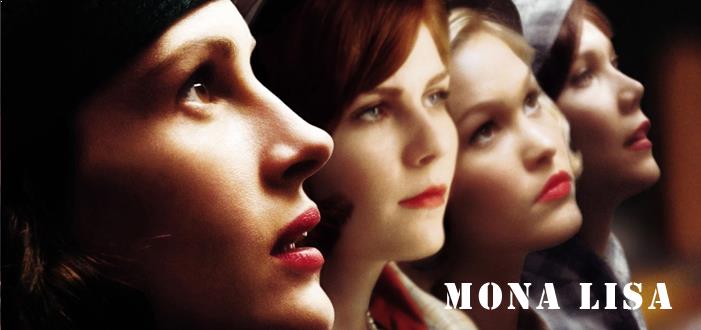
Mona Lisa Smile
Julia Roberts plays Katherine, a naïve graduate student who thinks she can change the world by teaching affluent young girls about canonical Western art, such as (shockingly) Mona Lisa. The logline is that her “progressive” ideals clash with the obstinate Wellesley College ways, which has inherited a certain rigid decorum to pass on to their girls. Katherine frankly does not believe women were meant to view marriage as the epicenter of their lives. She thus abhors the Wellesley culture which prims the girls for supporting their affluent husbands. The cycle is rinsed and repeated with their future daughters.
What does Katherine wish to see instead? Freedom. She feels very strongly that this is a penitentiary mentality for women. Women are capable of doing more than creating and nourishing a family. Her insistence on this reaches a climax where she ridicules housewife advertisements in her classroom, as she imagines the dejected criticisms from future art historians on the conformist society’s value of femininity.
Fortunately the script is impartial. A typical Hollywood ideologue would humiliate Wellesley in the face of Katherine’s unobstructed and unadulterated vision of progress in society, whereby women can achieve like men. Instead, she faintly learns a subtle lesson to calm her “subversive” zealotry: marriage is a choice to be happy as well.
She learns this from her most promising student, Joan, who she pressures in applying to Yale Law. Joan rebuts Katherine’s stubborn disappointment that she has opted to wed and follow the journey directed by her husband by defending that this is a choice she has made for herself. Katherine cannot disabuse the notion that Joan has made a free decision. Yet radical feminism potentially disseminated by Hollywood would still claim the enslavement inculcated by the social order which presents Joan with a false choice.
The contents of the film beyond this moral dilemma with mid-century women are quite superficial. There simply exists contrived dramatic vignettes with the girls in Katherine’s classroom as well as her own romantic inquisitions, as ephemeral as they are. The film is mainly concentrated on the culture of Wellesley and of the affluent Eastern women. It’s appealing to those who find time-pieces exotic.
Grade: C+

